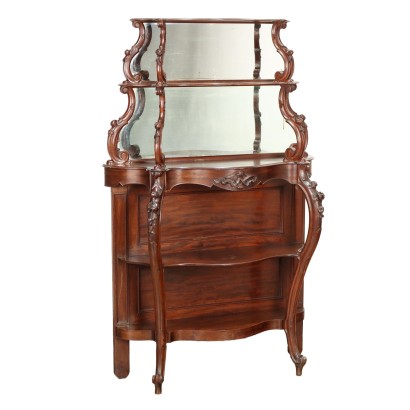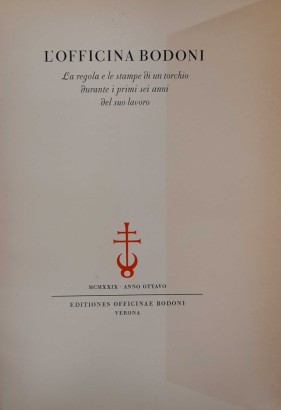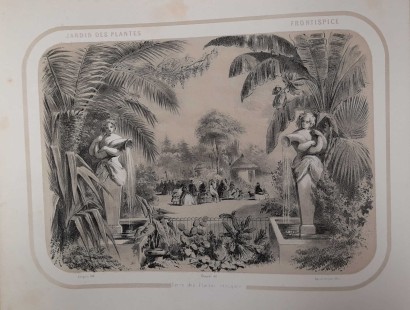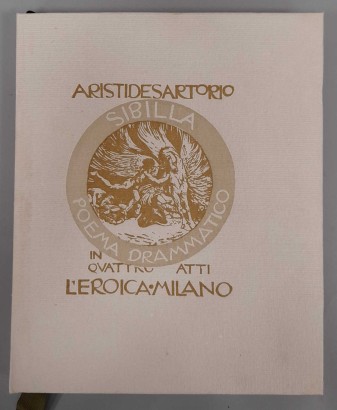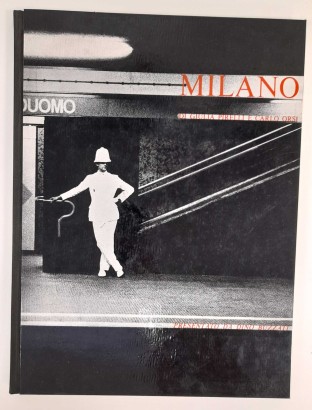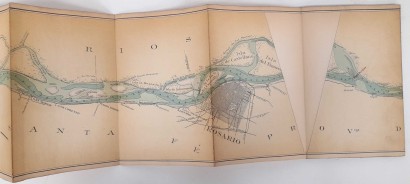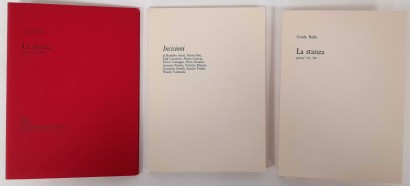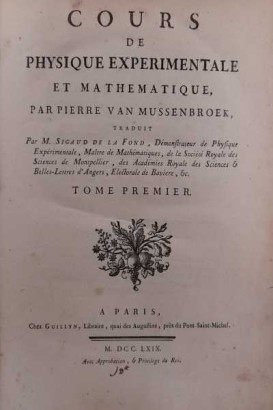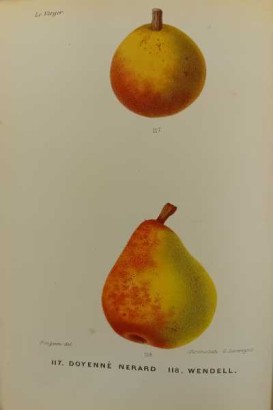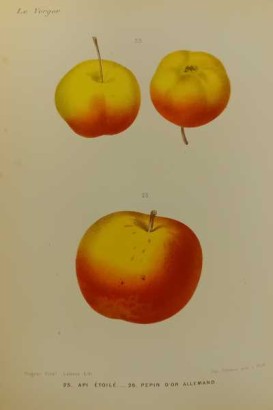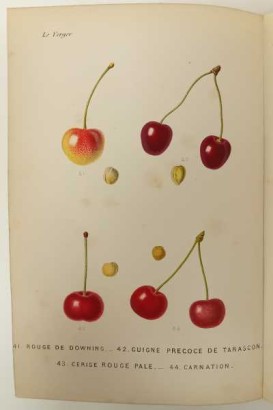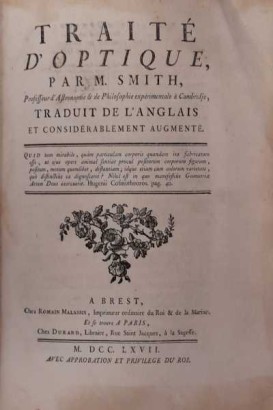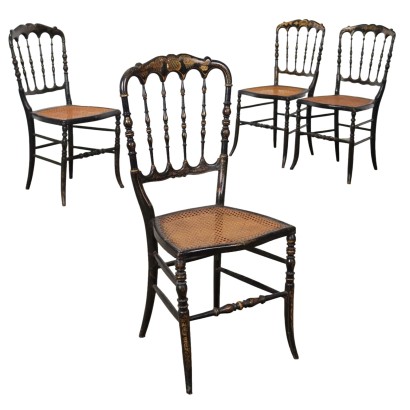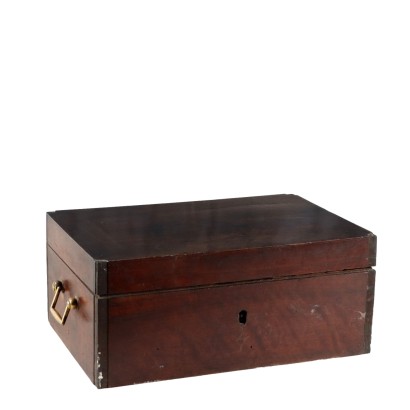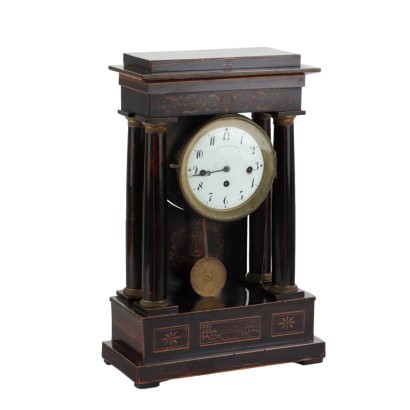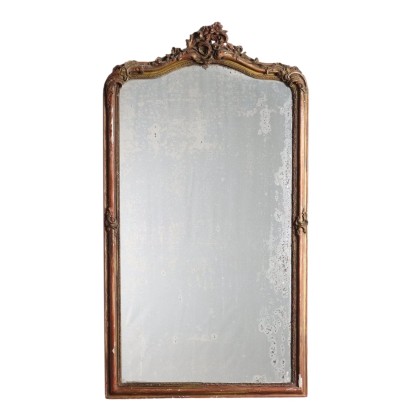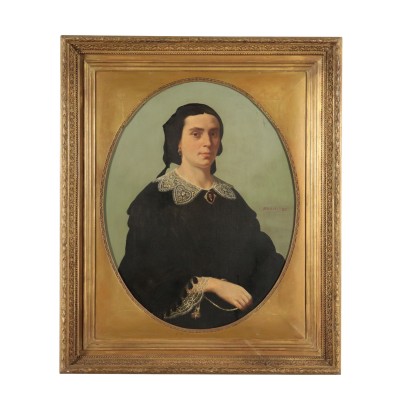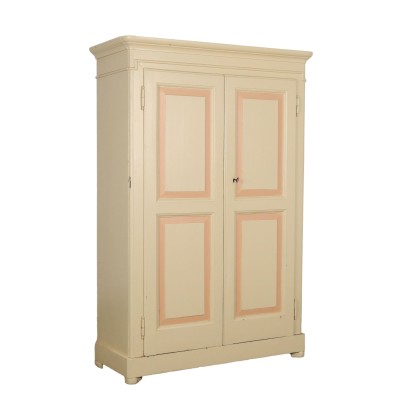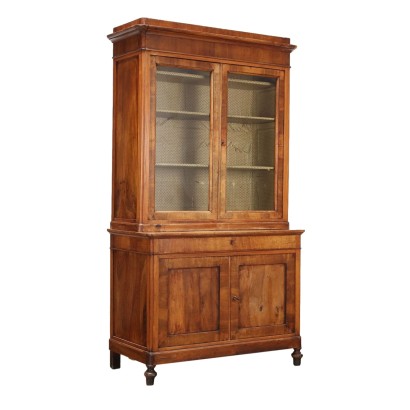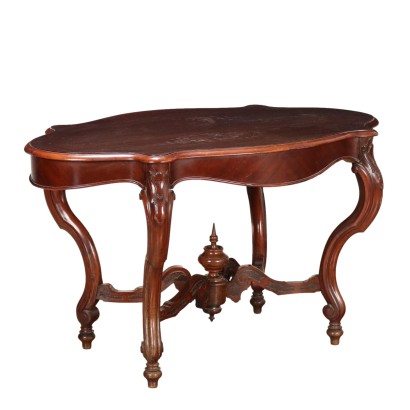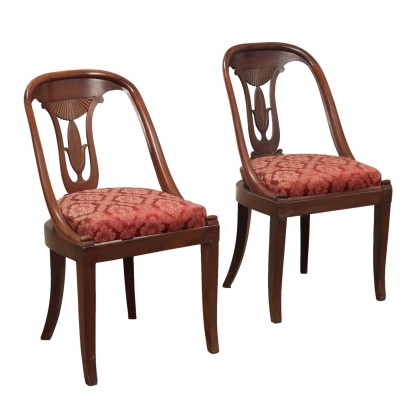Antique Étagère Umbertino Mahogany Italy XIX Century - Italy Late 19th Century
Features
Italy Late 19th Century
Style: Umbertino (1870-1900)
Age: 19th Century / 1801 - 1900
Origin: Italy
Main essence: Silver Fir , Mahogany
Material: Mahogany Slab , Carved Wood , Mirror
Description
Étagère umbertino in mahogany and mahogany veneered fir, Italy, late 19th century. Five shelves, wavy uprights carved with curls, leaves and fruit. First two upper sections equipped with mirrors.
Product Condition:
Product that due to age and wear requires restoration and re-polishing. We try to present the real state of the furniture as fully as possible with photos. If some details are not clear from the photos, what is reported in the description will prevail.
Dimensions (cm):
Height: 157
Width: 100
Depth: 35,5
Additional Information
Style: Umbertino (1870-1900)
The name of this style is due to the ruler of the time Umberto I appointed King of the Kingdom of Italy on January 9, 1878 and assassinated on July 9, 1900.The Umbertino style is typically Italian and belongs to that Eclectic period that characterized the second half of the 19th century, which lasted just under twenty years. The Umbertino style spread around 1880 and ended around 1895 when a new style called Liberty and universally known as Art-Nouveau took over, followed by Art-Decò.
In this style, predominantly eclectic and monumental, Gothic and Baroque elements originally belonging to the Renaissance but also adorned with large masks, frames and decorations were re-proposed in furniture, from the bedside table to the large wardrobe or sideboard.
Find out more about the Umbertino style with our insights:
An Umbertine secretaire dedicated to Dante Alighieri
A comparison between a Louis Philippe console and an Umbertina
INSERT ADDITIONAL LINKS:
The Austrian taste of Baroque
A guide to Art Nouveau
Discovering Art Deco
Age: 19th Century / 1801 - 1900
19th Century / 1801 - 1900Main essence:
Silver Fir
Soft coniferous wood, used for rustic furniture or to build the chest, that is the structure, of furniture then veneered in more precious woods. It has been used since ancient times, its most valuable use is, in the Spruce variant, in the inlays of French antique furniture of the '700 . The spruce, more typical of northern Europe, in Italy grows mainly in the Eastern Alps at altitudes above 1300 m. The noblest use of this essence was in the construction of violins, guitars and cellos: Stradivari himself produced his famous violins with this wood.Mahogany
It is one of the most precious and sought-after woods in cabinet making. It was discovered in Central America around 1600 and began to be imported to England in the 1700s. Much appreciated for its hardness and indestructibility, it became widespread following the blocking of walnut exports from France in 1720 and the consequent elimination of English import duties on mahogany from the colonies in America and India. The most valuable version comes from Cuba, but it became very expensive. At the end of the 18th century it began to be used also in France in Louis XVI, Directory and Empire furniture, its diffusion declined starting from when Napoleon, in 1810, forbade its import. It was generally used in the manufacture of elegant furniture, due to its characteristics and beautiful grain.Material:
Mahogany Slab
Carved Wood
Mirror
Other customers have searched:
Altri mobili antichi, toilette antica, inginocchiatoio antico, baule antico, inginocchiatoio, mobili antiquariato, mobili antichi, bauli, cassapanca..
Se ti interessano i mobili d'antiquariato Scopri qui tutte le presentazioni dei prodotti d'antiquariato più belli, eleganti e preziosi su FineArt by Di Mano In Mano
Leggi di più
Sull'antiquariato in generale dai un'occhiata anche a:
Antiquariato: una sezione per raccontare i mobili antichi che sono arrivati fino ai giorni nostri.
Classic Monday: da un pezzo dei nostri magazzini alla storia dell'antiquariato
L'antiquariato dalla A alla Z: il Dizionario dell'Antiquariato
Il dizionario dell'antiquariato - Lastronatura
Il dizionario dell'antiquariato - Mascherone
Il dizionario dell'antiquariato - Natura morta
Il dizionario dell'antiquariato - Opificio
Il dizionario dell'antiquariato - Pastiglia
Il dizionario dell'antiquariato - Savonarola
Il dizionario dell'antiquariato - Rosone
Intaglio barocco con motivo a ricciolo
Infine, dai un'occhiata alle nostre rubriche di divulgazione sulla storia delle arti decorative e d'arredo:
Epoche
Lavorazioni e tecniche
Mostre ed Eventi
Protagonisti
Leggi di più
Sull'antiquariato in generale dai un'occhiata anche a:Antiquariato: una sezione per raccontare i mobili antichi che sono arrivati fino ai giorni nostri.
Classic Monday: da un pezzo dei nostri magazzini alla storia dell'antiquariato
L'antiquariato dalla A alla Z: il Dizionario dell'Antiquariato
Il dizionario dell'antiquariato - Lastronatura
Il dizionario dell'antiquariato - Mascherone
Il dizionario dell'antiquariato - Natura morta
Il dizionario dell'antiquariato - Opificio
Il dizionario dell'antiquariato - Pastiglia
Il dizionario dell'antiquariato - Savonarola
Il dizionario dell'antiquariato - Rosone
Intaglio barocco con motivo a ricciolo
Infine, dai un'occhiata alle nostre rubriche di divulgazione sulla storia delle arti decorative e d'arredo:
Epoche
Lavorazioni e tecniche
Mostre ed Eventi
Protagonisti

